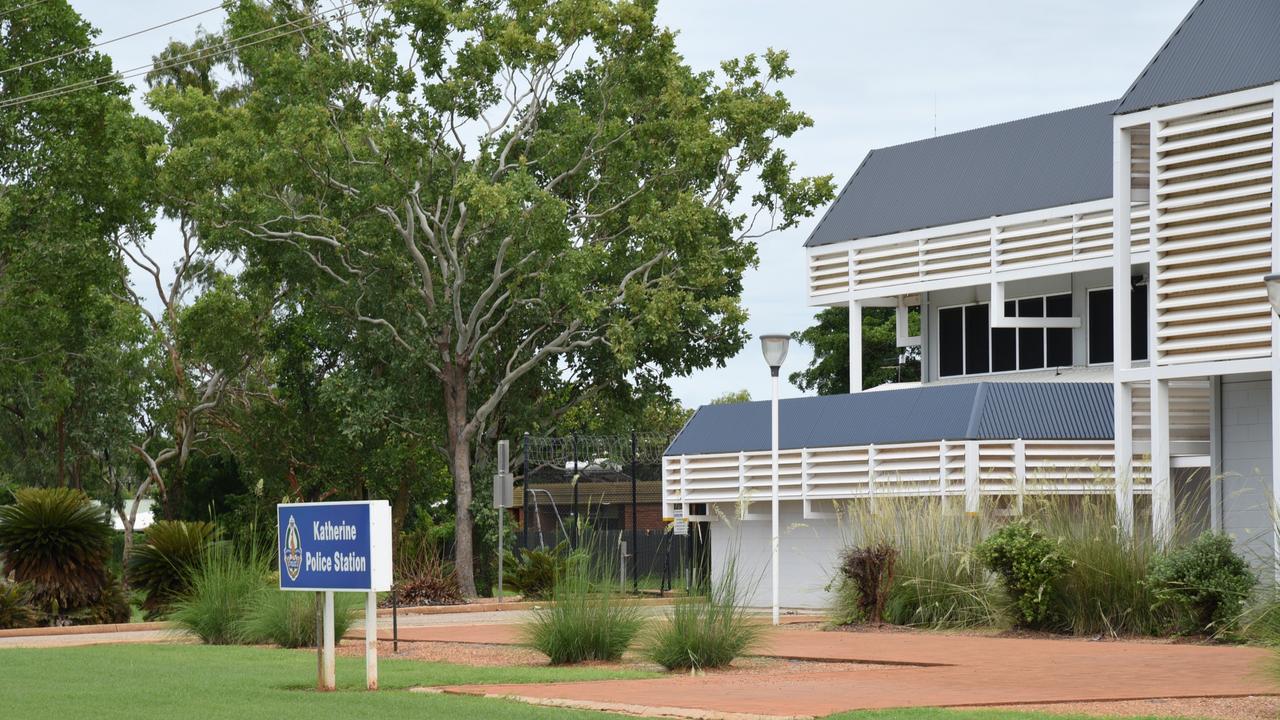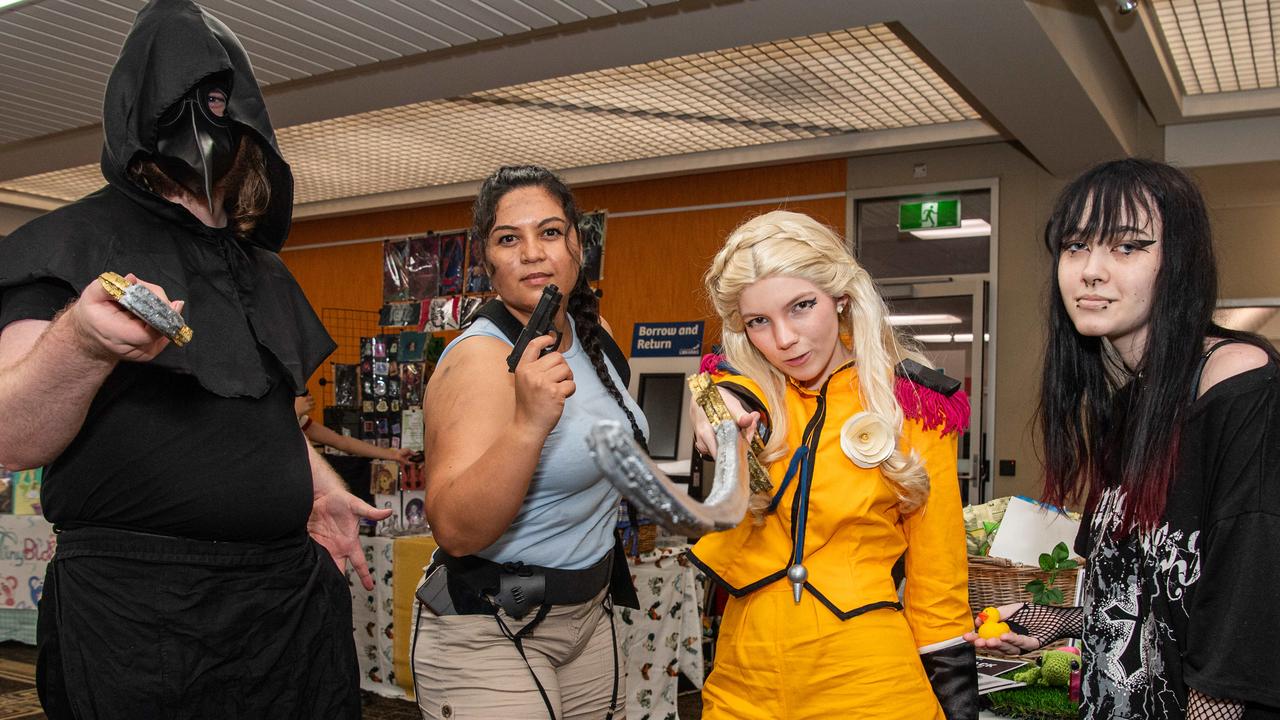The violent end of real Crocodile Dundee Rod Ansell in Northern Territory
MORE than a decade after his tale of survival brought fame to actor Paul Hogan, the real Crocodile Dundee was shot dead by police after a drug-crazed rampage that saw a police officer killed and three other men wounded
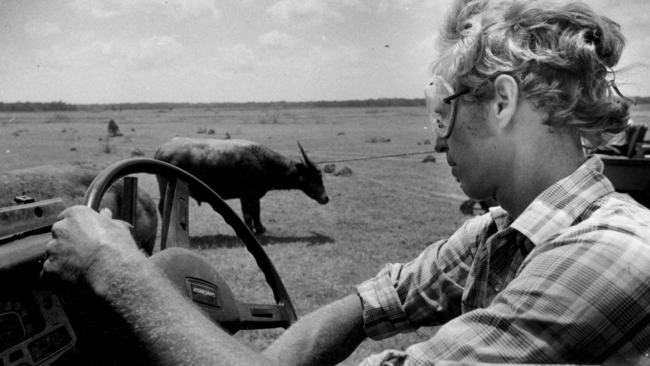
Northern Territory
Don't miss out on the headlines from Northern Territory. Followed categories will be added to My News.
ROD Ansell’s amazing story of Outback survival is one many Australians know - although they’ve probably never heard of his name.
As strong as an ox and as brave as a lion, the blond haired, barefoot bushman survived for more than seven weeks on a small island at the mouth of a crocodile-infested river in the remote Northern Territory, sleeping up a tree with a brown snake at night to avoid the salties lurking below.
His story was the inspiration for the 1986 Australian film Crocodile Dundee. But the film only tells part of the story of Ansell’s wild life.
More than a decade after his tale of survival brought fame and fortune to actor Paul Hogan, the real Crocodile Dundee was shot dead by police after a drug-crazed rampage that saw a police officer killed and three other men wounded.
***
STRONG men in uniform broke down on the side of the Stuart Highway the day Territory police officer Glen Huitson was shot dead in a gunbattle with Rod Ansell.
It was like a scene from a cops and robbers movie.
But nobody won.
Sergeant Huitson was gunned down at a roadblock in bushland 60km south of Darwin by Ansell, who had been on the run from police.
Ansell was shot in the chest as Senior Constable James O’Brien returned fire.
“The only verbal communication I had with the gunman was when I was reloading the shotgun for the first time,’’ the surviving officer, who has never spoken openly about the ordeal, said in a statement almost 15 years ago.
“I called out to him to put his weapons down. He called back, ‘You’re all dead’.’’
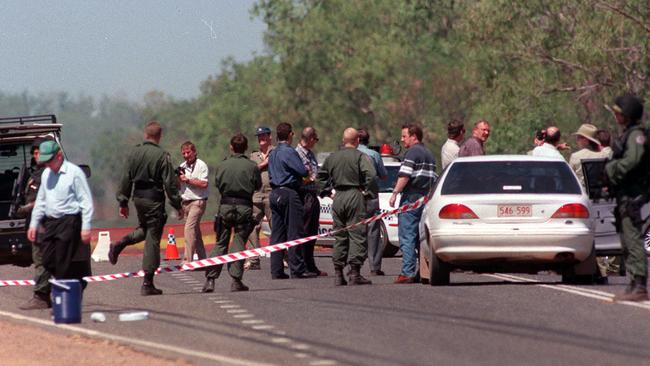
Ansell was deranged and wired on speed, more than 20 years after he emerged from the wild, a handsome young hunter armed only with a knife, a gun and a story to tell, his boat having capsized on the remote Victoria River.
His crazed life came to an end on August 3, 1999, but not before he had gunned down a police officer, leaving two young children to grow up without a father.
Northern Territory police say they lost “an all-round good bloke’’ that day.
Sgt Huitson’s family was robbed of much more.
In 1994, Sgt Huitson had been commended for bravery after arresting a knife-wielding drunk man - who was also armed with a star picket and a billy of boiling water in a bid to harm another person - at a community near Alice Springs.
He received a Valour Award after he talked delusional man Wayne Costan - who had tried to hijack a tourist coach with a sawn-off .22 rifle - into dropping the weapon, before tackling him to the ground at Litchfield Park in February 1999.
Six months later Sgt Huitson was killed, aged 37.
His then-infant daughter, Ruby, and five-year-old son, Joseph, grew up without their dad.
His widow, Lisa, took home her husband’s posthumous Australia Bravery Medal and a broken heart.
Former NT Police assistant commissioner John Daulby was among those who raced out to the double killing.
“Everyone was stunned,’’ he said. “It was just a tragedy.”
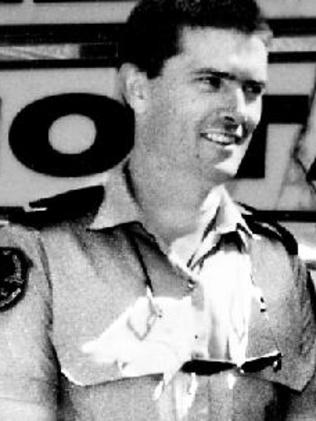
“The grief at the scene is something that sticks with me - grown men in tears.’’
Ansell had wounded two men on a shooting spree in Darwin and fled into the bush, raving mad, on the night of August 2, 1999.
He was convinced members of the Freemasons had kidnapped his sons - Callum, then aged 20, and Shawn, 18.
His girlfriend, Cherie Ann Hewson, had told him that as a child she had witnessed the sacrifice of young girls that
her family - members of the secret medieval fraternity - “brought out of the woods’’. They were bound, raped and slaughtered, she said.
The shared paranoia came to a head when Ms Hewson claimed she spotted three bow hunters, dressed in camouflage with night vision goggles, near their bush camp.
NT Coroner Dick Wallace would later say the “wretched drivel’’ was at the root of Ansell’s madness, after the couple visited mates Steven Robinson and his partner, Lee-Anne Musgrave, on a property at Noonamah, about 50km south of Darwin.
Ansell fired six shots at their caravan on Kentish Rd.
Resident David Hobden jumped in his truck, armed with his double-barrel shotty, and went to investigate the shootings. He lost an eye when Ansell put a bullet through the windscreen of his truck.
He ran to alert his neighbour, Brian Williams, who “waxed wrath’’ at the state of his mate’s face and grabbed a baseball bat.
He charged at Ansell, who was trying to steal Mr Hobden’s truck.
“I smacked him straight down the forehead, and that’s when he blew my hand off,’’ Mr Williams told police.
“He was going on about stealing his children, and Freemasons, and being a baby killer ... oh, just, he was mad, mate.’’
Ansell fired shots at the Williams’ house.
Then he ran away, his rifle in one hand and Mr Hobden’s shotgun in the other.
Ms Hewson disappeared before the police shootout. Some feared she had committed suicide.
About 11pm, Territory Response Group sent two troop carriers with six cops in each to set up a command post. They manned the north roadblock.
Adelaide River police station boss Sgt Huitson and his second-in-charge, Sen-Const O’Brien, guarded the south cordon - at the corner of Old Bynoe Rd - with a pistol each, a 12-gauge shotgun and standard police issue .308 rifle.
About 10.30am the next day, a removals worker named Jonathan Anthonysz was leaning on the cop car, chatting to the officers when a bullet blew a hole “the size of a baseball’’ in his pelvis.
He was flung forward, screaming, on to the ground.
Mr Anthonysz’s colleague - David Hobden’s brother, Anthony - dragged him out of view as Snr-Const. O’Brien covered them.
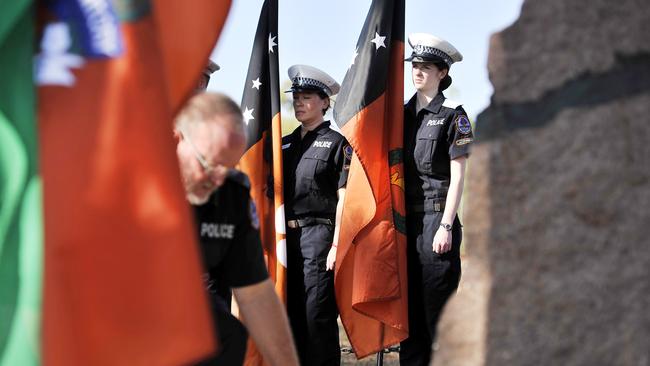
The shots were coming from light scrub behind a roadside water pipe.
The cunning fugitive had sneaked through the bush and was hidden by dappled tree shadows.
In his statement, Snr-Const O’Brien said: “I heard Glen shout out, ‘Get on the ground’.
I swung round to look over the boot of the car with my Glock drawn ...
“I saw my shots hit the ground close to where (Ansell) was,’’ he said.
Sgt Huitson called TRG for help and grabbed a 12-gauge shotgun.
He fired a shot through the windows of the police car and two shots over the roof.
But a bullet from Ansell’s .30-30 lever-action rifle ricocheted off the top of the metal door and struck him in the abdomen.
His bulletproof vest hadn’t been properly fastened. The bullet tore through a velcro strap that should have been covered by a Kevlar panel.
Sgt Huitson fell, landing on top of the shotgun.
Snr-Const O’Brien, who wasn’t wearing a vest, dodged a bullet and rolled his bleeding colleague off the shotgun, reloaded it and returned fire.
“I realised unless TRG arrived I could run out of ammunition, in which case I would have to retreat with the others,’’ he said.
“I loaded two more rounds, looked up and saw the gunman wriggling forward.
“I heard a sound like a match being struck just past the right side of my head.’’
Then the TRG troop carriers came hurtling down the highway.
The first driver hit the brakes and swerved as he heard gun fire - the 4WD rolled when the second car crashed into it, unable to stop in time.
Ansell got up on one knee and began lining up the cops, who were crawling out of the vehicle.
Snr-Const O’Brien got a clear shot.
The autopsy showed 33 bullet wounds and grazes to Ansell’s body.
Two were fatal. One shot had ripped through his aorta.
He fell face down in the dirt.
Sgt Huitson was declared dead after being rushed to Royal Darwin Hospital.
Snr-Const O’Brien was scrutinised and cleared of any wrongdoing after a rigorous police investigation.
His actions were praised as “simply outstanding’’ when Magistrate Wallace handed down his coronial findings in September 2000.
“If he felt any fear, it seems to have been submerged by his concern for his wounded colleague and others,’’ he said. “There can be little doubt his bravery prevented further loss of life.’’
Ms Hewson handed herself in to Queensland police four days later.
Evidence that Ansell clung to the back of a road train and escaped the roadblocks fuelled a question that would never be answered - why would a skilled bushman give up his ticket to freedom and return to gun down police when he could have slipped away?
IT was no secret the 44-year-old buffalo hunter and grazier was bitter.
Writer Robert Milliken, who spent time with Ansell while working on projects in the NT, said Ansell never saw a penny for the myth surrounding his tangled life, despite being the inspiration for the main character in Crocodile Dundee, which propelled actor Paul Hogan to fame in 1986.
Ansell blamed his troubles on a Federal Government program to wipe out wild buffalo, his livelihood, to eradicate tuberculosis from the cattle industry. He had told reporters he was living on unemployment benefits and “bush tucker’’.
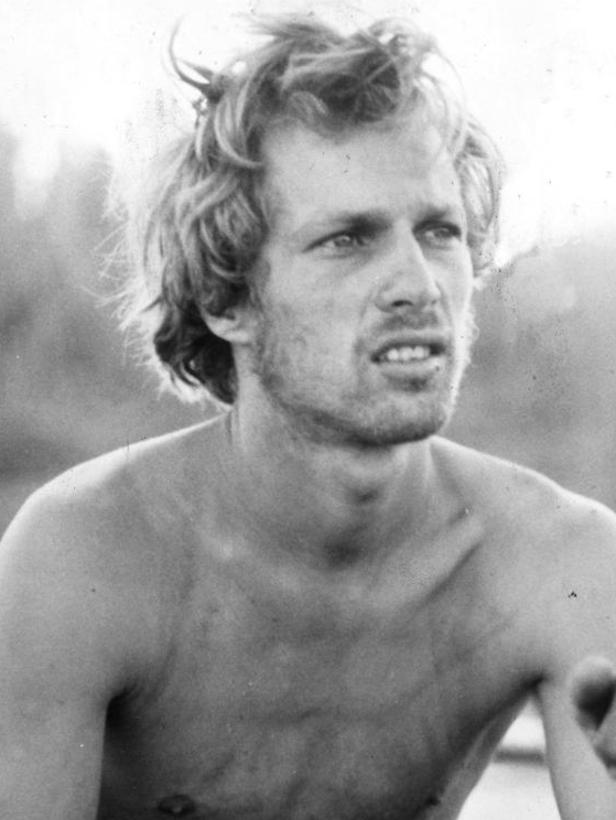
Magistrate Wallace heard Ansell believed police and the government were against him.
He had moved to the Territory aged 15 from the small town of Murgon, 270km north of Brisbane, in country Queensland.
The ordeal that brought him fame happened when he took a fishing trip in a motorboat on the Victoria River in May 1977.
When the boat sank, he jumped in a dinghy and salvaged his two eight-week-old bull terriers, a rifle, a knife, some canned food and bedding. The tinny drifted out to sea, washing up on a small island at the mouth of the Fitzmaurice River.
He slept in the fork of a tree, out of reach of crocodiles, at night, but shared the branches with a brown tree snake.
Ansell never counted on being rescued. He roamed for seven weeks before stumbling on two Aboriginal stockmen and their boss.
But he kept the adventure under his hat - fearing his recklessness would upset his mother - until media got hold of the yarn.
Dubbed the “modern day Robinson Crusoe’’, Ansell said: “I think if you come through in one piece, then nothing else really matters.
“It’s like going out to shoot a kangaroo.
“You don’t come back and say you missed by half an inch - you either got him or you didn’t.’’
Mr Milliken described Ansell as “strikingly handsome with blond hair, blue eyes and bare feet’’ when he met him in 1988. It was the year Ansell was named Territorian of the Year for his role in putting the Top End on the map.
At the time, he lived with his wife, Joanne van Os, and their two small sons on their buffalo farm at Melaleuca, between Darwin and Kakadu.
“He was charming,’’ Mr Milliken said.
“He seems never to have worn shoes, even when travelling on aircraft and staying in city hotels at the height of his fame.
“The press went mad over his story and no one seemed to mind if the details grew ever more incredible.
“A hero had been born.’’
He said Ansell once told British TV personality Michael Parkinson he preferred to sleep on the floor of his five-star Sydney hotel in his swag rather than in the kingsize bed.
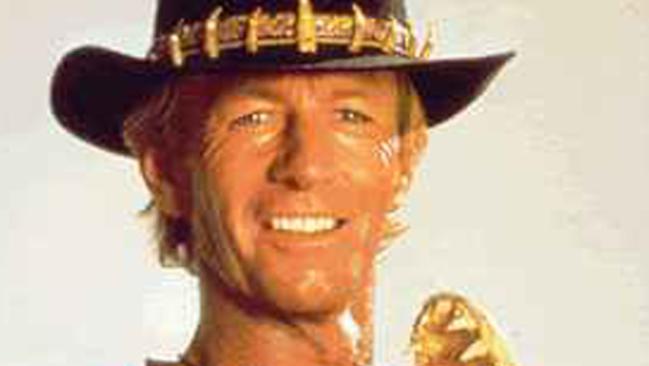
Ansell’s Parkinson interview sparked the interest of Hogan and led to the creation of Mick “Crocodile” Dundee.
But the fame took its toll on Ansell’s personal life. His marriage disintegrated.
In 1992, he was convicted of cattle rustling and assaulting the owner of a cattle station in Arnhem Land.
Police raided Melaleuca. He eventually lost the property.
For more than a year before his death, Ansell had been living with Ms Hewson, a former tour guide, on a billabong at the Aboriginal outstation Urapunga, on the Roper River, about 480km south of Darwin.
He was initiated as a white member of local Aboriginal clan and got on well with the Ngukkur community. But the spiral into a drug-induced psychosis continued as Ansell smoked cannabis and injected amphetamines with vengeance.
“I didn’t know Ansell really well, but I’d met him a few times,’’ long-time Territorian and former reporter Chips Mackinolty said.
“He was tough as nails, the sort of person that could do what he said he did, and did do it when he was working as a stockman, as a wrangler and that stuff.
“He was an extraordinary person at that level, but it ended up in tears.’’
Mr Mackinolty was heading to Katherine and had been allowed through the roadblock earlier on the day the killing happened.
“It was one of those ‘goose steps on your own grave’ sort of feelings - you were very close to what ended up being a very awful thing.
“It’s always sad when the threat of poverty and frustrated ambition get mixed up and send people off the edge, big time,” Mr Mackinolty said.
“I was completely shocked, as were a lot of people who knew him in the earlier years.’’
In his coronial ruling, Magistrate Wallace said the contrast between the “original Crocodile Dundee who appeared on television’’ and the emaciated drug addict - who weighed just 53kg when he opened fire on police - could hardly be more marked.
“His drug abuse rendered his mind so addled he believed fantasies that a child would dismiss with contempt,’’ he said.
“His pointless and destructive actions caused immediate agony and suffering to the men he wounded.’’
The infamous rampage means Ansell is remembered in Darwin not as a knockabout bushman, but as the man who murdered a heroic cop.

